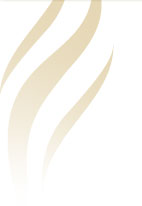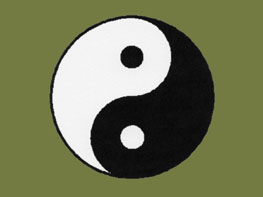


Acupuncture & Health Improvement
Frequently Asked Questions
What is Acupuncture and how does it work?
In a human body, there are 12 main regular meridians, with each connected to one of the twelve organs and possessing its own route within the body. Chi (or Qi, vital energy), which is generated from the intake of food and air, as well as exercises or meditation, flows through these channels. There are over 360 acupuncture points on the meridians and many more elsewhere. Blockage of Chi results in various health problems. Acupuncture alleviates the condition by stimulating the appropriate points on the meridians using hair-thin needles to regulate the energy. Tonification is applied to where there is a deficiency of Chi, and reduction is applied to where there is an excess of Chi. The ultimate goal is to restore the body to its original harmonious and balanced state.
What is Oriental Medicine?
Oriental Medicine, also known as Traditional Chinese Medicine (TCM), has a long history of over thousands of years. It refers to the usage of Acupuncture treatment, herbal therapy, and other modalities such as moxibustion, health and healing exercises, cupping, nutritional therapy etc. in treating illnesses. The theory of Oriental Medicine is very complex. Some basic concepts include Yin and Yang, the two opposing and inseparable forces in the human body, and the five elements, namely metal, wood, water, fire and earth, which map out the physiological functioning of the internal organs.
What is Acupuncture effective for?
Acupuncture is recommended for treating various conditions including but not limited to:
- Pain relief and control - back, neck, shoulder, limb, joint, tooth
- Headaches/Migraine/Sinusitis
- Arthritis/Fibromyalgia
- Anxiety/Stress/Depression/Bipolar
- Hypertension/High cholesterol/Diabetes
- Insomnia/Fatigue
- Stroke rehabilitation
- Neurological disorders - Bell's palsy, sciatica, trigeminal neuralgia etc.
- Musculoskeletal disorders
- Allergies/Ear, nose and throat disorders
- Respiratory, gastrointestinal disorders
- Endocrine, immune system disorders
- Side effects of chemotherapy
- Smoking cessation/Weight control
What should I expect during my first visit?
You will be asked about your medical history, current complaint, lifestyle, behavior and how you feel both physically and emotionally. The diagnosis will then be continued by "listening" to your pulse attentively, and examining parts of your body as needed in order to come up with a treatment plan and exercise advice. Including the first acupuncture treatment, an initial visit usually takes about 1 hour.
What kind of needles is used?
Only one-time-use disposable needles made of surgical stainless steel that come in pre-sterilized packs are used.
How deep are the needles inserted and does it hurt?
The depth and angle that the needle is inserted depends on the acupuncture points selected for treating the condition as well as the patient's age and build. On the average, it varies between 0.25 to 1 inch. The patient's specific complaint and his/her symptom pattern will dictate the number of points to be used. The feeling that one gets from the stimulation by hand or electricity is usually heaviness and/or tingling around the needle or along the path of the targeted meridian. A lot of patients find this a relaxing experience. If there is any discomfort at all, it is generally very mild and well tolerated.
How will health and healing exercises help?
Once the Chi blockage in the meridian(s) is regulated, regular practice of move(s) from ancient Chinese health/healing exercises is crucial to help maintain the vital energy flow and the benefits from acupuncture, and prevent the condition from reoccurring.
Can western and oriental medicine be combined?
Combination of western medical diagnosis and oriental medical treatment often provides an effective way to attack the source of the health problem non-invasively. Acupuncture does not interfere with western medical techniques. While western medication is often used for treating emergency conditions, Chinese herbal medicine is better suited for treating chronic conditions. If both western and Chinese medicines are being used, they should be taken about 2 hours apart to reduce the possibility of interaction.
How does herbal therapy work?
Formulas in Chinese herbal therapy make exclusive use of herbal combination. Each herbal prescription is a cocktail of a number of herbs customized specifically for the individual patient. Usually a couple of key ingredients are used to target the principal pattern of the condition being treated. Other ingredients are added to balance and moderate the effect or to adjust the Yin/Yang condition of the patient. For the convenience of modern life, they now readily come in the forms of capsules, tablets, tea pills or powder. Acupuncture combined with herbal therapy can be an effective treatment for some conditions.
Is Acupuncture covered by insurance?
More and more health insurance companies are accepting claims for acupuncture treatments. You should confirm with your own insurance provider before treatment about the coverage for your condition based on your insurance plan.